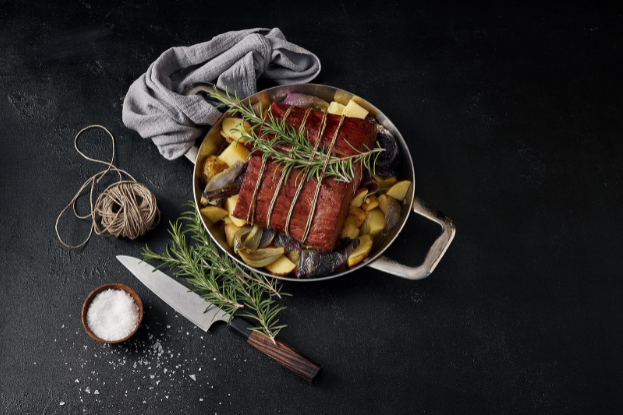From 'alternative' kebabs to 3D printed steak, plant-based alternatives are having their moment
Almost every day one can read some newspaper report about the degrading state of our environment and it can seem hopeless. As individuals, it's easy to feel powerless. You can't tell China to cut coal emissions or get India to switch to renewables by 2025. Nor could you force the United States to pay a carbon tax for previous emissions or convince London to insist on zero-emission vehicles by 2040. But there are, of course, things that we can control and diet is a big one. For those concerned about the environment, a Guardian report that highlighted a study published in the journal Science was illuminating. Joseph Poore from the University of Oxford led the research and told the newspaper that, "a vegan diet is probably the biggest single way to reduce your impact on planet Earth, not just greenhouse gases but global acidification, eutrophication, land use, and water use. It is far bigger than cutting down on your flights are buying an electric car," Poore says as flights and cars only contribute to greenhouse gasses. What we eat contributes to everything.
So, instead of bemoaning what we can't do, let's focus on what we can do. And clearly, one massive thing we all could do would be to move towards a plant-based diet. Luckily, this doesn't mean we have to give up the textures or flavors of meat. Modern-day high-tech meat substitutes are marvels of engineering and technology. A new plant-based kabab, for example, is so nearly identical in terms of texture and taste that in a blind taste test, it could be extremely easy to mistake one for the other. Other new alternative meat solutions are going far beyond those famous 'bleeding burgers'- some are being created with the aid of AI and 3D printing! This "new meat" technology will only improve so, in short: you can have a plant-based diet while continuing to enjoy the traditional flavors that you grew up with.
With that settled, let's move on to the growing awareness of the sentience - and therefore arguably inherent - rights of animals. A Gallup poll from 2015 found that almost a third of Americans (32%) believe that, "animals should be given the same rights as people, while 62% say they deserve some protection but can still be used for the benefit of humans." The 32% number had gone up quite a bit from the last time the question was asked in 2008. In 2008, just 25% of Americans thought animals should have the same rights as humans. Anecdotal evidence shows that today, that figure is even higher... and could be somewhere in the 40% range. All around the world we see movements towards a greater respect for the rights of animals. Increasing numbers of people find using animals in a circus or at an amusement park unacceptable, while the idea of using animals for research such as testing perfumes or household chemicals has long been seen as cruel by a good percentage. But now, this awareness of animal rights is moving towards the animals we use for food.
Another development is the Covid pandemic, which is causing quite a few people to begin reassessing meat-eating. The prevailing theory currently on the origins of Covid is that it is a zoonotic disease, meaning it spread from animals to people, probably in the context of a wet market or someplace where meat was butchered and sold. So, we have dual concerns here. One is an awareness of the sentience of animals. Their ability to feel pain, fear, and other so-called 'higher emotions' has now been proven without much doubt in animals from fish to cows. And secondly, there are growing concerns that the next great pandemic could also arise from the tradition of eating meat, as it provides a vector for viruses to merge and become plagues. Overall, whether you're looking at this from an animal rights perspective, a health perspective, or an environmental concern perspective, the writing is on the wall for meat. It's an unsustainable industry that will only grow more unsustainable as we race to feed perhaps as many as 9 billion people within a few more decades.
Meat substitutes will help us transition to plant-based diets. We need to be able to convince people that they don't have to sacrifice and they don't have to give up traditions. This is where the idea of vegan butcher shops - which have now cropped up all around the world including even in Hong Kong - are of huge value. You walk into a shop that looks like a butcher shop, you buy your cut of vegan meat, you go home and cook it as if it were meat... and thus begins a process of evolution. We need to evolve away from meat. Evolution, however, takes time. Activists need to stop condemning and start selling people on alternatives while explaining clearly the benefits a person will receive for both themselves and the planet they live on by switching to a plant-based diet. We can do this, people!
© 2024 NatureWorldNews.com All rights reserved. Do not reproduce without permission.
* This is a contributed article and this content does not necessarily represent the views of natureworldnews.com




![Venomous Centipede Could be Game-Changer and Save Lives of People with Kidney Disease [Study]](https://1471793142.rsc.cdn77.org/data/thumbs/full/70407/280/157/50/40/venomous-centipede-could-be-game-changer-and-save-lives-of-people-with-kidney-disease-study.jpg)

